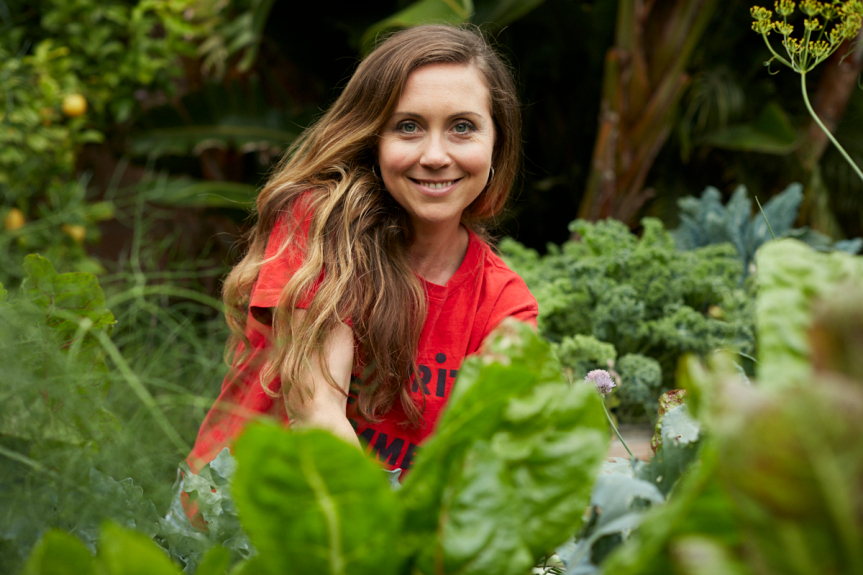Learn about brain health and nootropics to boost brain function
Superfoods expert Julie Morris offers tips on boosting immunity, getting healthy

Natural food advocate and chef Julie Morris has been a pioneer in the realm of superfood cooking for well over a decade. (Courtesy Julie Morris) For every person who has adopted a healthy food-and-fitness regimen during this COVID-19 crisis, there’s one ordering pizza delivery from every place in town, binge-desserting on the last of this season’s Girl Scout cookies and drinking, shall we say, a wee bit more alcohol than they would in normal times. So we decided to check in with Julie Morris , a Los Angeles-based chef and recipe developer who is an expert on plant-based, nutrient-rich superfoods. She is the author of several cookbooks, and her newest is “Smart Plants: Power Foods & Natural Nootropics for Optimized Thinking, Focus & Memory.”
Q: What are you eating during this COVID-19 crisis?
A: I’ve definitely been leaning on healthy, yet comforting foods: Oatmeal piled high with superfood goodies, matcha lattes, avocado toast and colorful salads harvested from my garden that are loaded with cooked legumes, grains and nuts. I’ve also been enjoying finishing off some of the random stuff in my cupboard — like hazelnut oil, dried wakame seaweed and canned jackfruit — and finding creative ways to put it to use. Oh and I think I’ve made somewhere around a half-dozen loaves of banana bread by this point, too!
Q: How can we forgive ourselves for all the comfort-eating we’ve been doing and ease back into some better practices ?
A: Food at its very core is designed to comfort and nourish us, so it’s no surprise that during such difficult times, we are instinctively turning to more calorie-dense meals. But part of moving on is moving forward and embracing the beauty of a fresh start. Rather than being hard on ourselves for “indulging,” now is the time to celebrate the idea of a clean slate and set the new goal of building wellness.
Q: Do foods that are billed as calming truly have that effect?
A: On a biological level, they certainly can help. Many herbs such as chamomile, lavender and ashwagandha contain naturally occurring compounds that have a mild calming effect on our neurochemistry. Other foods are high in calming nutrients, such as the magnesium found in almonds, or the tryptophan in black beans. Some foods can even help mitigate stress and elevated cortisol, like dark chocolate or cacao.
Q: Are some foods better than others at boosting immunity?
A: Definitely! Immune-supportive foods are usually high in vitamins, including, but not limited to vitamin C; high in minerals such as zinc and iron; full of protective antioxidants and phytochemicals; and low in antinutrients that suppress immune activity, like sugar. A few favorites include leafy green vegetables, berries, turmeric and medicinal mushrooms, like shiitake and reishi.
Q: What does the latest research say about foods recommended for people with a family history of dementia?
A: There is a lot of hope. Although there is no bulletproof guarantee, foods like berries, green tea, turmeric and some medicinal mushrooms have been lauded in many studies for their protective effects against cognitive damage and decline. Additionally, eating a brain-healthy diet overall can play a pivotal role in keeping the brain strong and warding off disease — plant-based foods and vegetables and the nutrients they contain are a key part of this equation.
Q: If you can’t get fresh turmeric and ginger, do the ground forms in the pantry provide some benefit?
A: Yes, they should. Dried spices and dried herbs are a wonderful way to enjoy the many benefits of some of the world’s most powerful plants. Just be sure there aren’t any preservatives added, like sulfur dioxide.
Read more at www.eastbaytimes.com